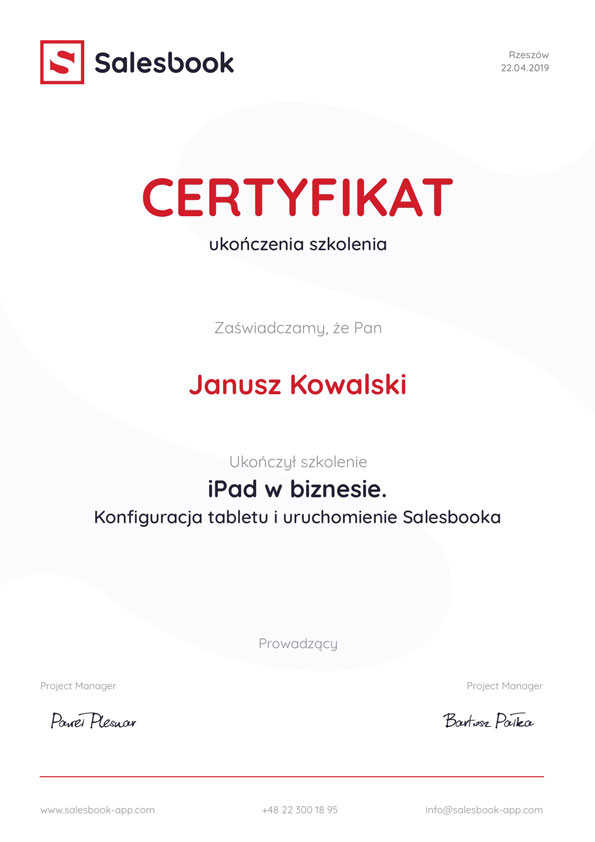

Sales
Uncategorized

14 Apr 2022
The explosion of interest in solar panels has caused entrepreneurs to start new companies to trade and install PV systems. Sincere ambitions quickly collide with reality: selling solar photovoltaics is not easy, the buying process is complex, and the competition is fierce.
Additionally, photovoltaic technology is conquering more markets and there are many indications that the real boom for renewable energy is yet to come.
But there is a solution: a well-planned sales process supported by dedicated tools that play a key role in it and guarantee time savings, increased efficiency of sales reps and profits.
In this article we will show you how to sell more and faster, based on procedures and proper application background.
Everyone has heard the saying “jack of all trades is a master of none“. And that’s pretty much the case with general software programs that are used in the solar panels sales process. Using them duplicates common sales process mistakes.
The most common of them are CRM systems, which by definition are designed to handle the various stages of the sales process.
However, there are two problems with classic CRM applications:
Also, you cannot count on the fact that in generic CRM systems we will carry out the entire service for a potential customer interested in PV systems, because they usually do not take into account the specificity of the market and the needs of this particular customer.
In addition, the implementation of such a system is not successful in every company – it is estimated that nearly half of such implementations fail. For this you need effective sales process and the whole sales methodology.
In order to quickly respond to market needs in a segment such as photovoltaics, a company needs a dedicated and flexible tool. Something that will satisfy its real needs, allow for quick increase of profits and really support sales team.
So we can safely say that the solar panels sales process success will depend on how well you prepare for the customer meeting, both in terms of sales tools and a smartly planned sales steps.
There are companies that rely on complete freedom of the sales reps actions in sales process steps.
At first glance, such a model may be justified when we have 2-3 representatives and we can talk to them every day. With 20 salespeople in sales team who have 3-4 meetings every day, and who – let’s face it – change frequently in our team, we need a standardized sales process.
This is because we need to make sure that our sales teams follow our defined tactics at every stage. Such a sales processes can consist of the following mandatory elements:
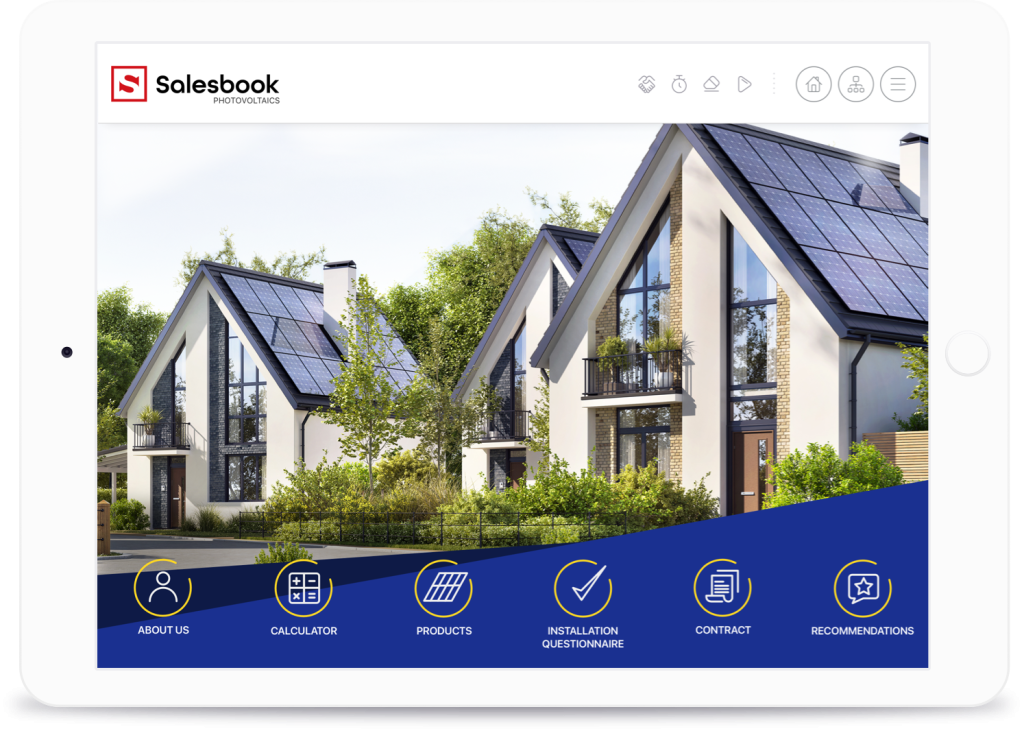
To understand the role of the strong sales process, let’s examine each of the points mentioned above.
This stage of the sales process is seemingly obvious, but sales reps often skip it, which causes problems when finalizing the contract. Therefore, it is worth building trust in the brand already at the first meeting with the client.
The materials provided by the marketing teams, as well as references or reports from past implementations describing past achievements and experiences will help in this.
Only when the customer gets to know both the product and your company, you can be sure that they have received all the information they need to make an informed decision about placing an order.
There is no better offer than one that is tailored to the customer’s real needs. If we diagnose the pain points accurately we will definitely get closer to signing the contract.
If we find out how much the customer pays for electricity per year, we will be able to choose a specific sollar cells or the whole set that will meet his actual needs and nothing will stand in the way of finalizing the sale.
In the photovoltaic industry, many elements influence the shape of the final order. So check exactly what product your customer needs, and the effectiveness of your sales professionals efforts will significantly increase.
Interest aroused during the meeting with the customer works in your favor, but just as quickly as it appears, it can also disappear.
In order not to be outdone by the competition and close the sale at the first meeting, it is important to gather as much detailed information about your potential customer’s needs as possible.
If you succeed in doing this, generating an offer at the same meeting will ensure that you give yourself a big advantage in the good sales process. It is important to involve the customer as much as possible in the process of creating the offer itself.
To do this, use visually appealing calculators and interactive surveys. This will streamline the process of preparing the perfect offer and build the customers’ sense of empowerment and responsibility for its final shape.
Not every potential customers will be convinced to sign a contract at the first meeting. The first contact often ends up with the caller only being included in the sales funnel. However, if you do manage to set up an offer during the visit, it should be sent immediately to the customer’s email inbox.
The longer you delay sending the offer, the less chance you have to close the sale. This is where time definitely works against the sales team.
However, follow up does not end with sending a summary of the offer meeting. Phone contact is equally important. You will make sure that the customer no longer has any doubts about the documents received.
All data collected during the sales meeting should be immediately entered into the CRM system.
This will allow you to analyze the work of the sales team in real time and thus improve the quality of the sales process. It is important for the CRM system to receive as much high-quality data on customer preferences as possible.
It would be good for the entire organization to know right away that: the meeting took place at a certain place and time, what has already been presented to the customer, whether an offer has been calculated, etc. Therefore, these data must be immediately in the CRM system.
Thanks to this, analyzing the effectiveness of the sales department or carrying out activities related to e.g. additional sales will become child’s play.
Often, after sending an offer to a customer, we wonder whether the e-mail reached him, whether he managed to get acquainted with all the materials and documents. It is a waste of time to rely on guesswork in this case.
Having precise information about whether our e-mail was opened, we can use this information during the next contact with the recipient of our message.
The customer should be able to sign the contract in the most convenient form for him: he can do it right away on a tablet or remotely using SMS.
It is important to provide a high level of Customer Experience also during signing the contract.
Dedicated solutions allow you to manage the entire sales process and support the sales rep in all activities. They are not limited to just investigating the status of a sales stages, but give real value and tools at every stage: from meeting to signing a contract.
Below are the most important features of Salesbook PV, which supports salespeople and sales processes at all stages.
The company can be presented in a substantive and graphically appealing way. A sales rep is not doomed to carry worn-out catalogs and leaflets from meeting to meeting.
Now it is enough to use an appropriate application which provides a whole library of media and marketing materials prepared especially for the sales process.
Thanks to the central management of marketing and sales materials, we can be sure that our entire sales network is working on the right presentations, even when the sales rep does not have access to the Internet at the moment.
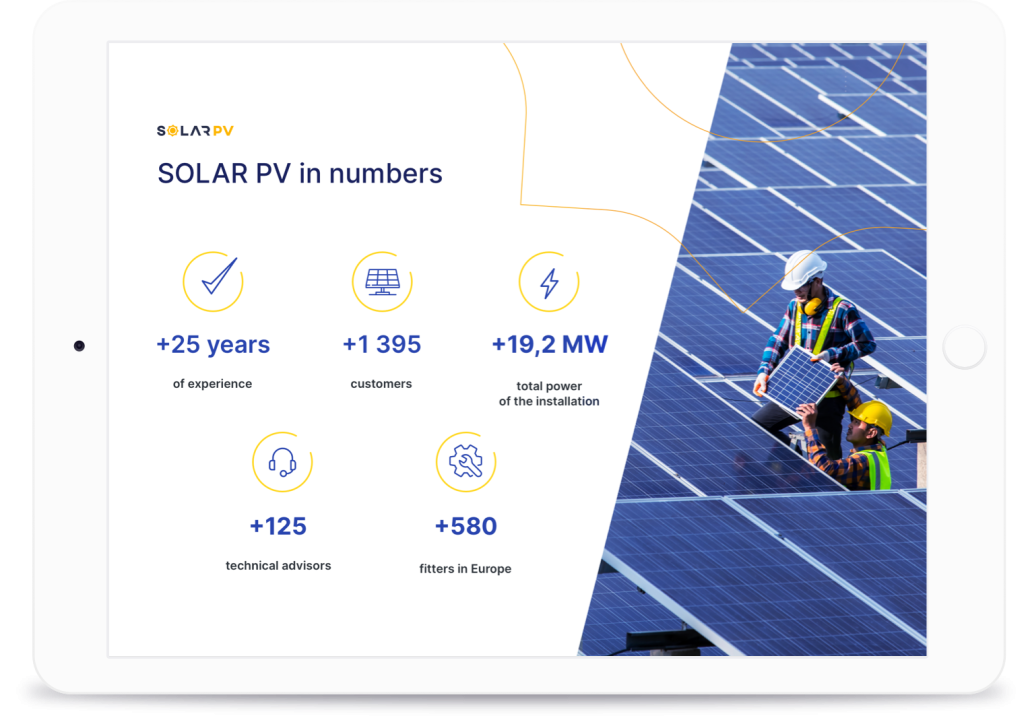
It’s worthwhile for the calculator module of a merchant support application to be tailored to a specific segment, e.g. to show only the desired fields and appropriate units.
In an ideal scenario, the built-in calculator module should allow for the customization of offer parameters (e.g. legal form or installation location), and should automatically take into account rebates and subsidies as well as the level of self-consumption and savings generated by the PV installation.
The calculator should work on the basis of the data provided by the customer and automatically calculate the total cost of the installation of solar panles.
Visualization is also important in the sales process. The offering tool should therefore be able to present the installation on the basis of a satellite image or a photograph provided by the customer.
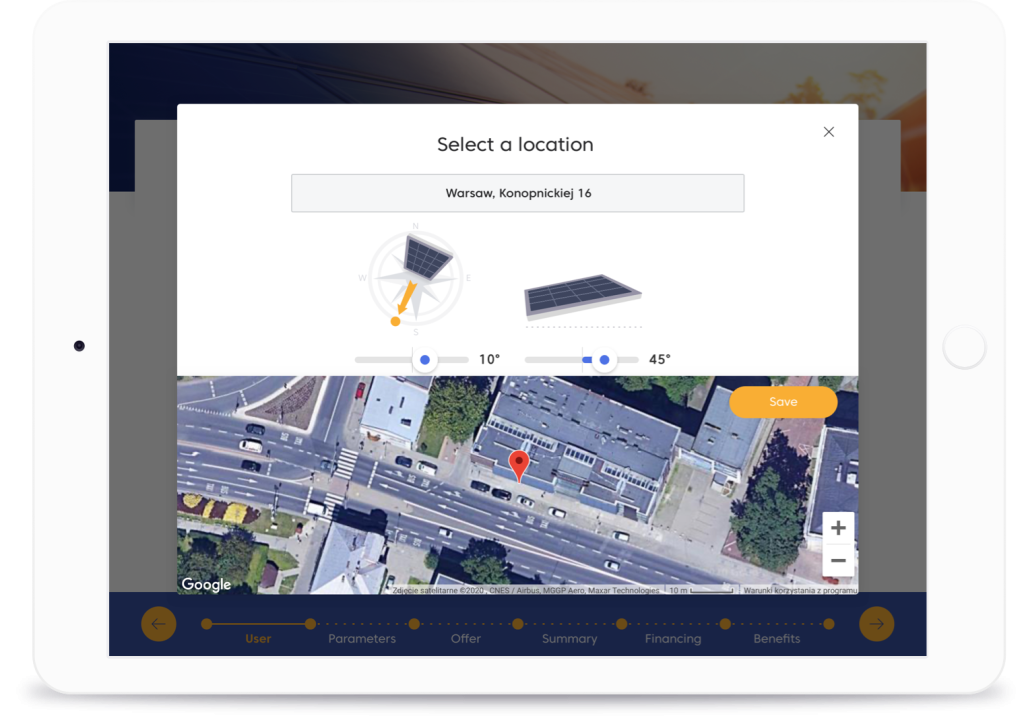
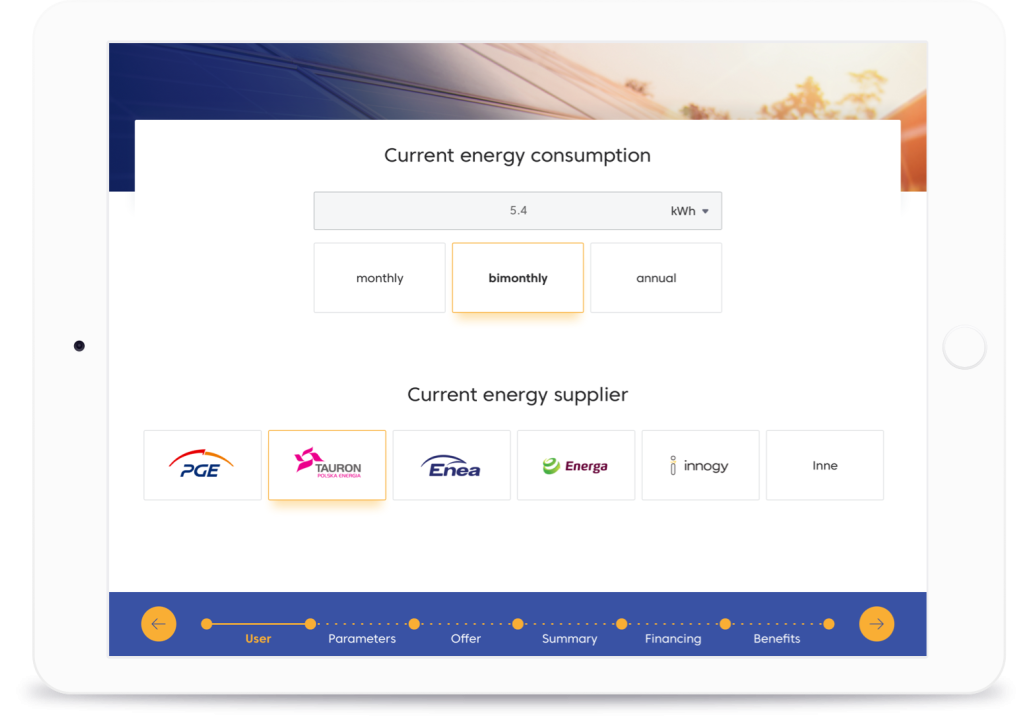
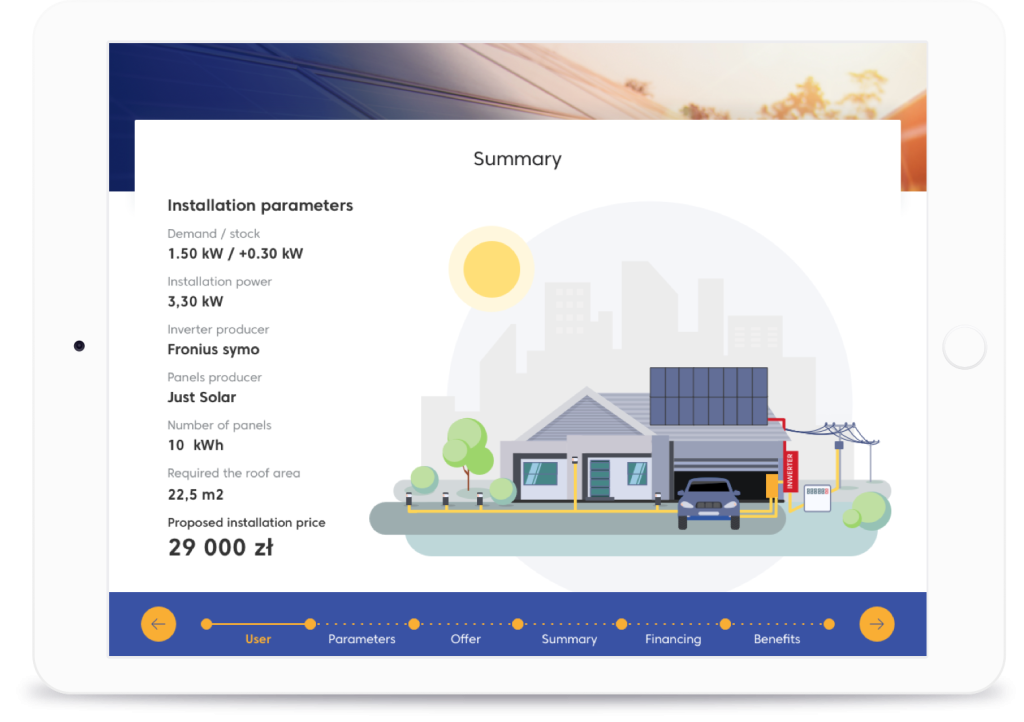
Every salesperson will agree that an email with a meeting summary should reach the potential customer before he or she escorts you to the exit door. So, the app should send the meeting summary right after the meeting ends, providing the customer with full information about the offer.
What’s more, this data should also go to the CRM, so that the salesman can save time on entering it, and the manager can be sure that all information is entered accurately and in detail.
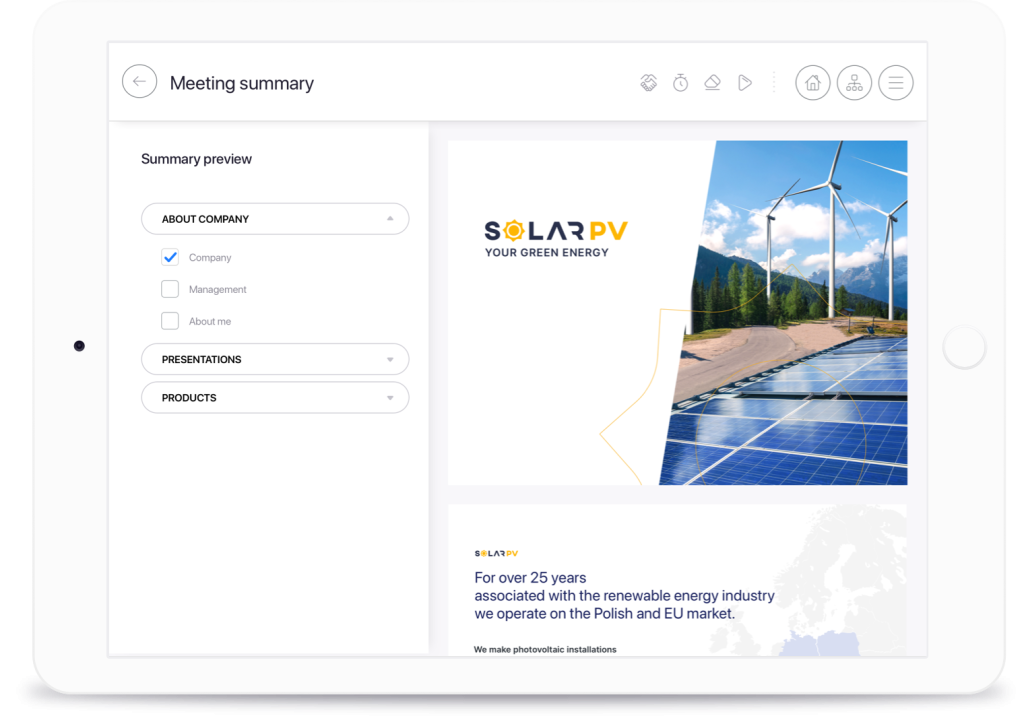
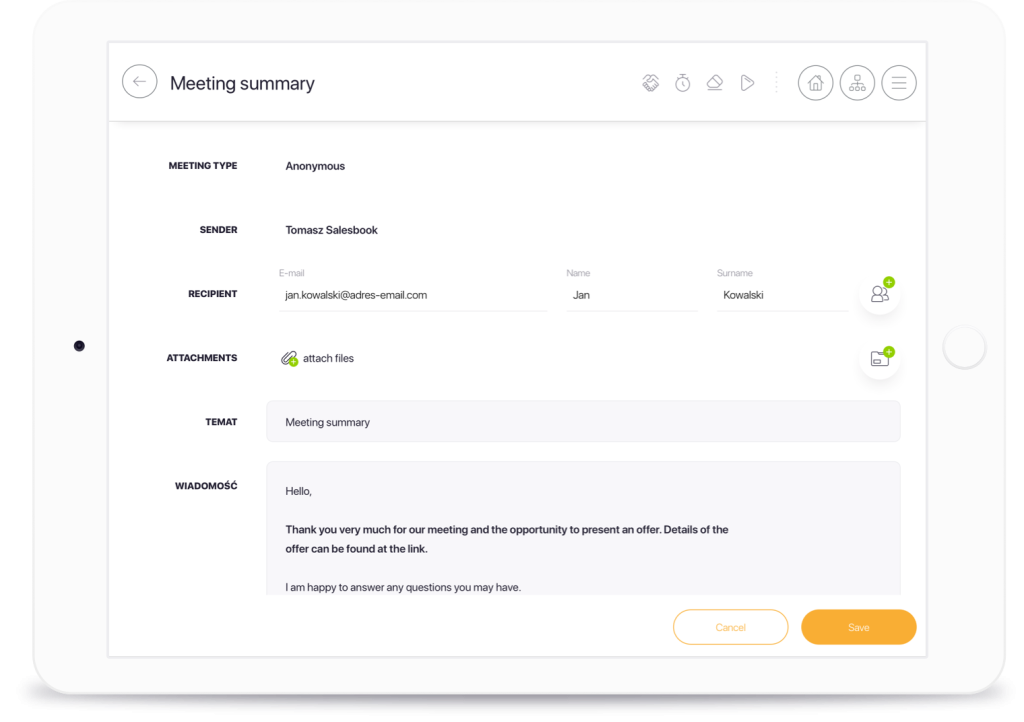
Before the contract is signed, it is necessary to prepare it. The system should therefore automatically prepare a document for us based on the information gathered in the various sales process steps, and then allow us to sign it in a convenient way: for example, on a tablet or via SMS.
This is especially important in times of pandemic, but also in those that are coming.
Customers who experience remote signing of contracts will not want to return to the old methods after a pandemic and make a trip to the salesperson or a special appointment with him to sign the papers.
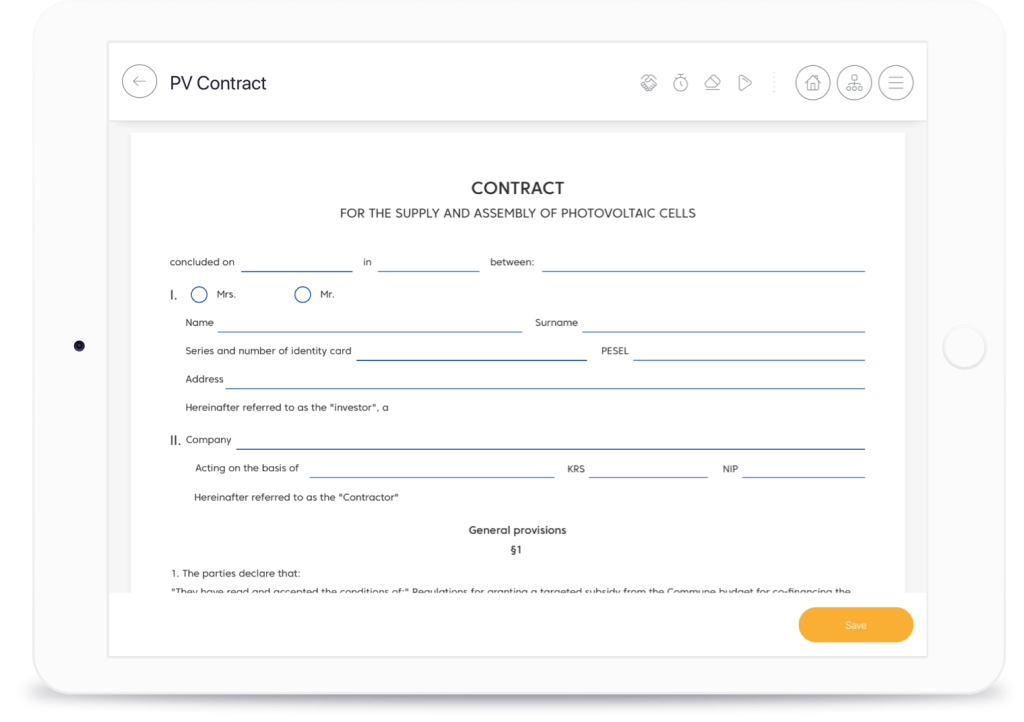
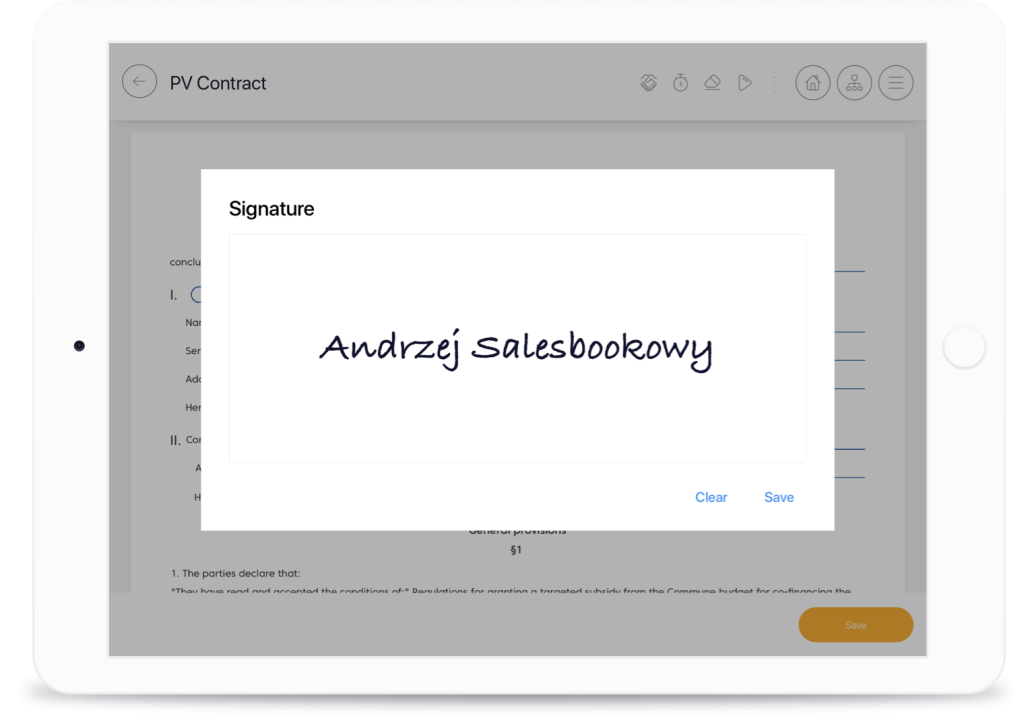
A CRM system may not be the main weapon of a PV salesman, but it is essential to store knowledge about the status of the sales process.
The CRM should be fed automatically with hard data so that the entire customer contact history is in one place.
This will make it easier to plan the next steps in the sales process and to find – if necessary – relevant information about the customer’s order.
It’s also important that all follow up happens automatically and takes as little of the salesperson’s time as possible.
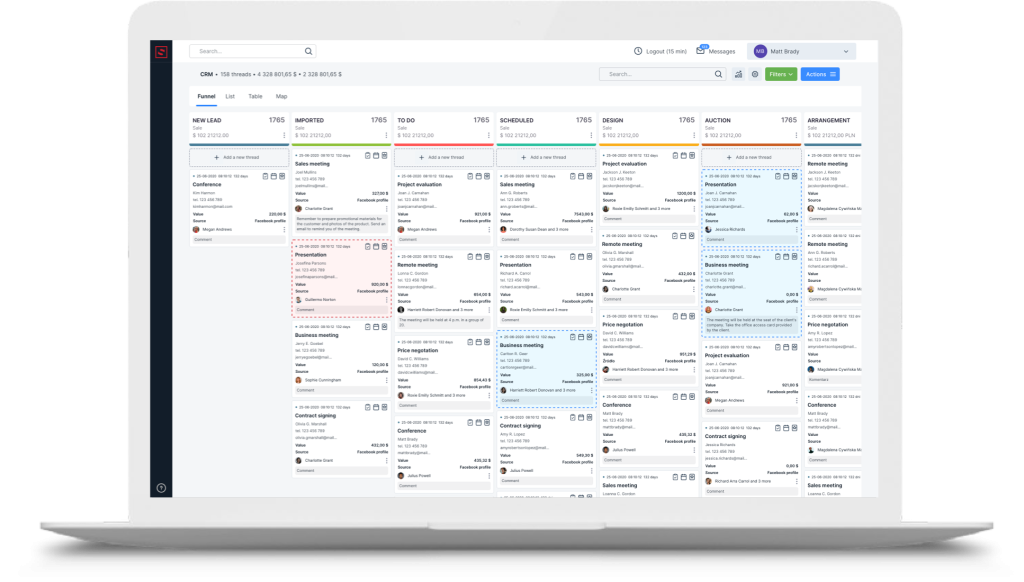
If we want our sales process to work efficiently, we need to constantly measure our results.
That’s why dedicated systems contain reporting and analytical tools that will tell us e.g. which meetings were effective or what leads to a quick sale closure, and which elements don’t work as we would like them to.
Thanks to such knowledge, we can duplicate the practices of the best salesmen and pass them on to e.g. new employees during onboarding.
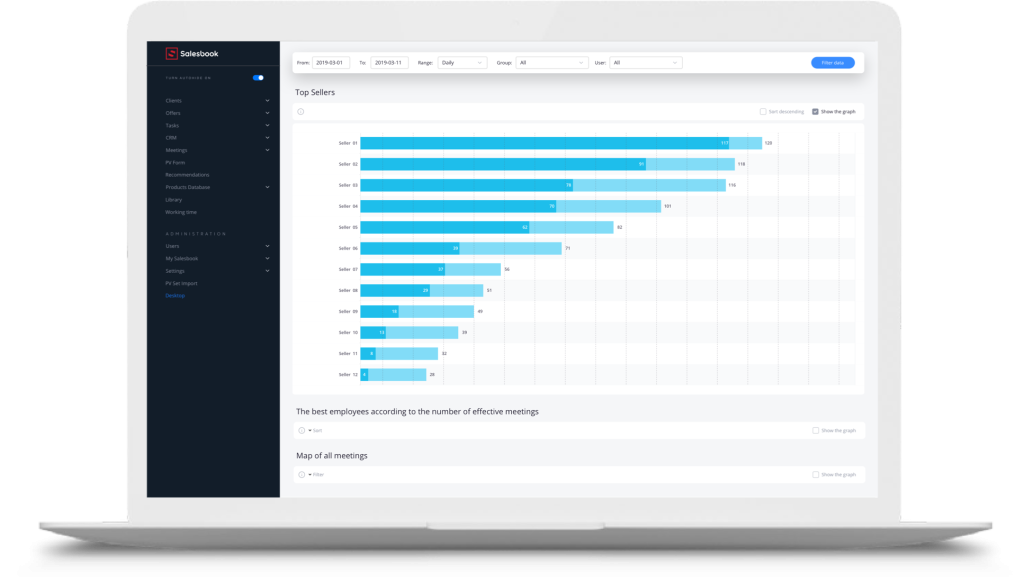
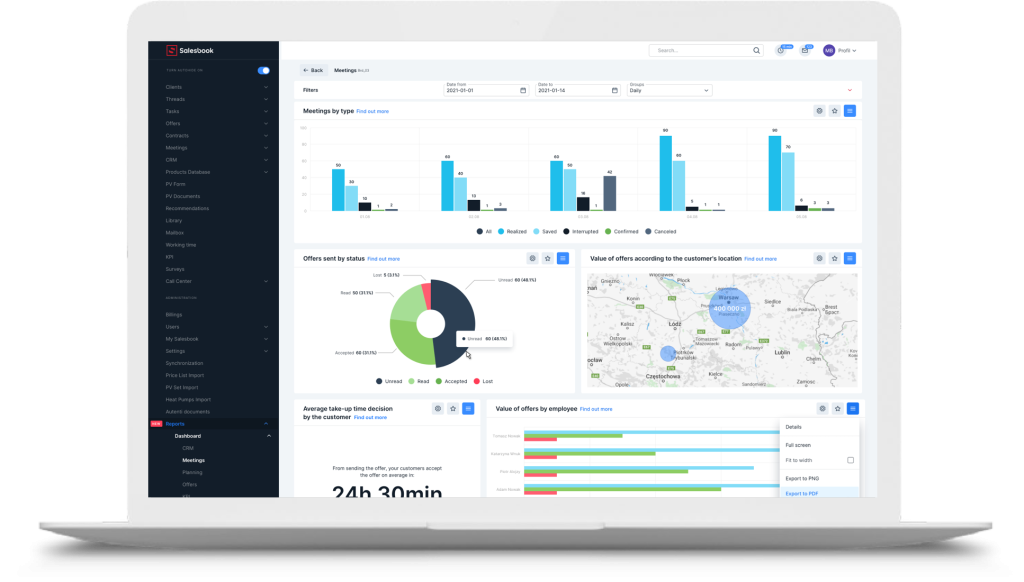
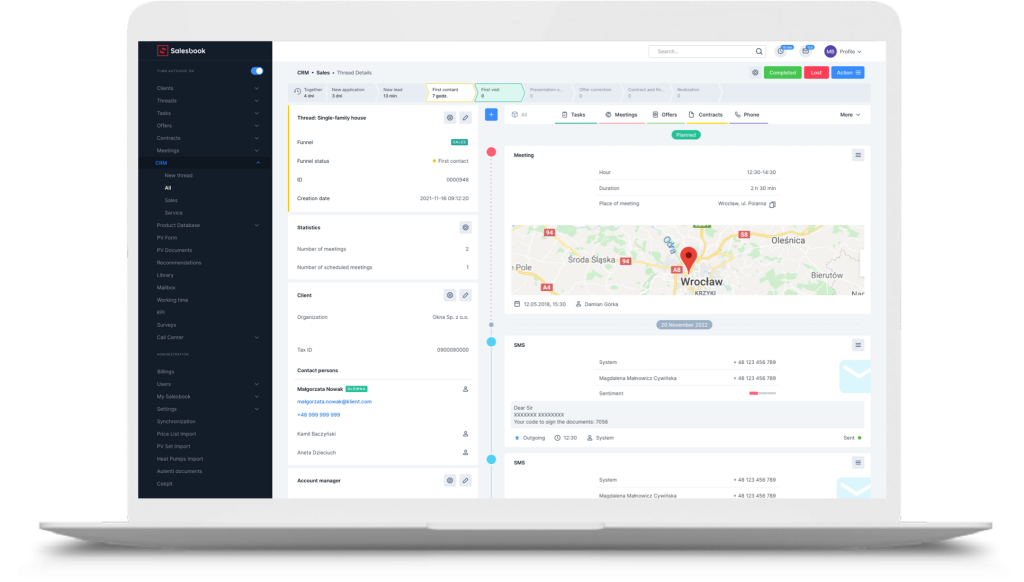
The rise of new technologies is opening doors previously unknown to salespeople.
It is worth taking a look at the opportunities offered by dedicated systems for solar panels sales, such as Salesbook.
At a time when the most important thing in sales is to quickly and accurately examine customers’ needs, keep them interested and provide high-quality after-sales service, systems supporting the whole process at each of its stages have a real impact on salespeople’s effectiveness.
They also save time of employees, increase their effectiveness and help to increase profits.
Schedule a free demo and see for yourself that Salesbook PV is the best dedicated system for solar panels systems sales. Companies like Fortum, Energa, Edison, Synergio and Sunday Energy have already trusted us.
Schedule a demo in your calendar by clicking here.

Any questions? Feel free to contact us.
+44 203 807 0179
Our Customer Success Team is available from Mon. to Fri. 9am - 5pm CET.
We support inquiries, processes of configuration and use of Salesbook app, as well as billing and technical issues.
